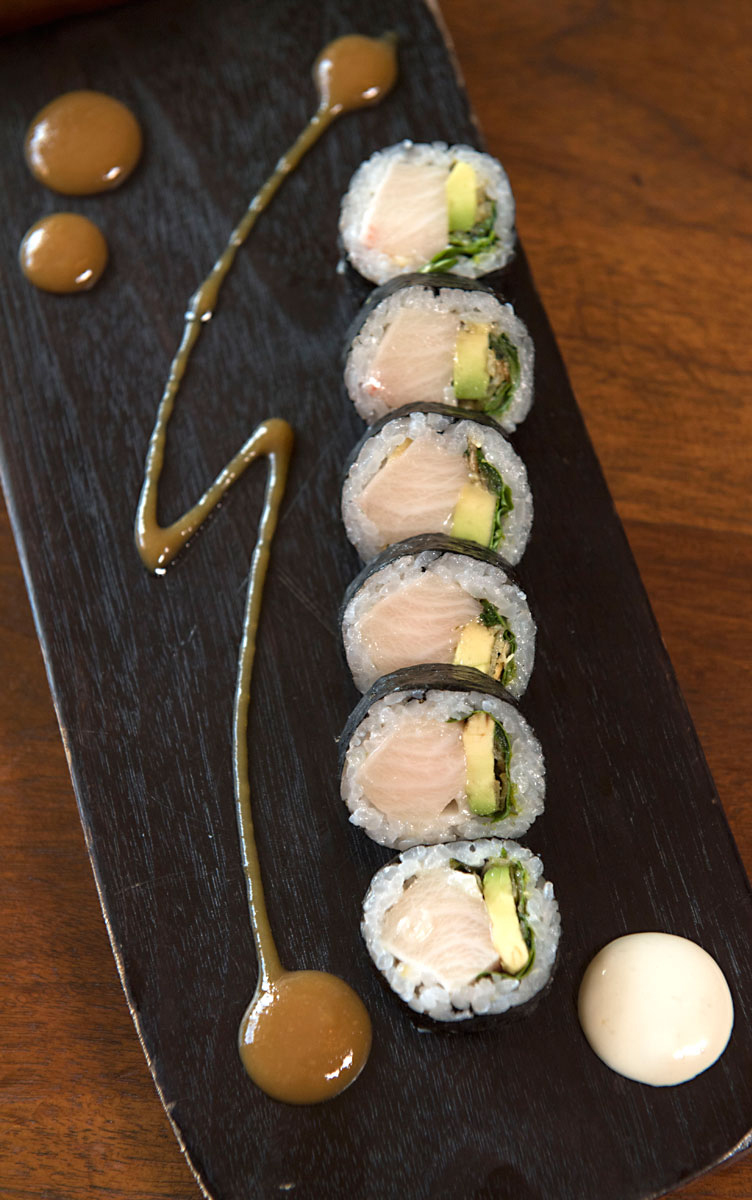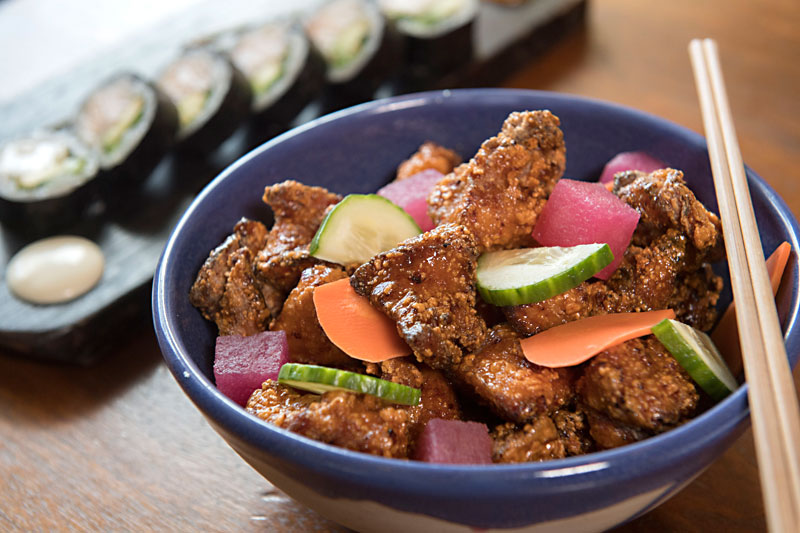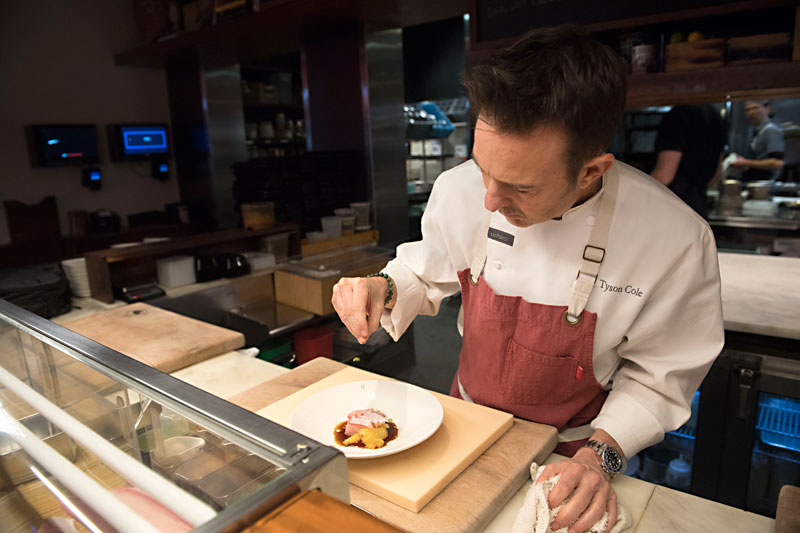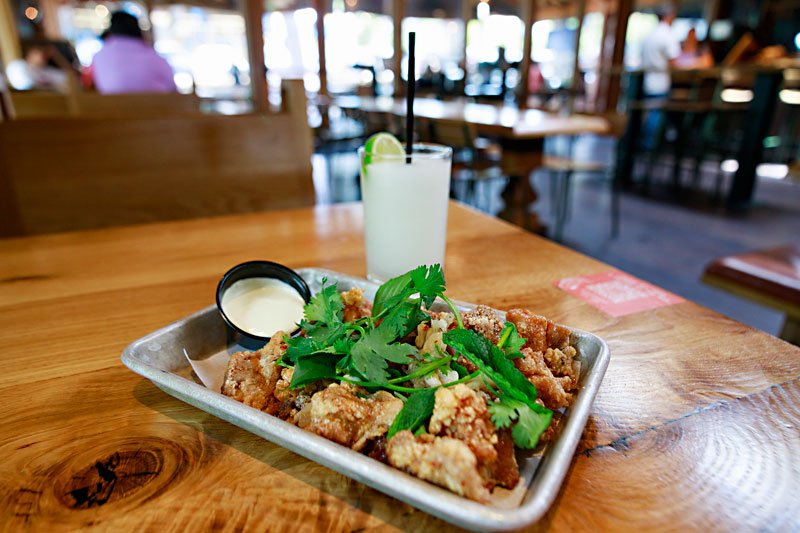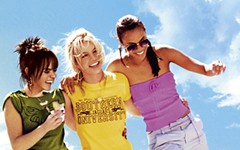How Acclaimed Sushi Chef Tyson Cole Achieved His Dreams in Austin and Beyond
The chef behind Uchi (and several more notable restaurants) gets Hai all the time
By Wayne Alan Brenner, Fri., Jan. 19, 2024
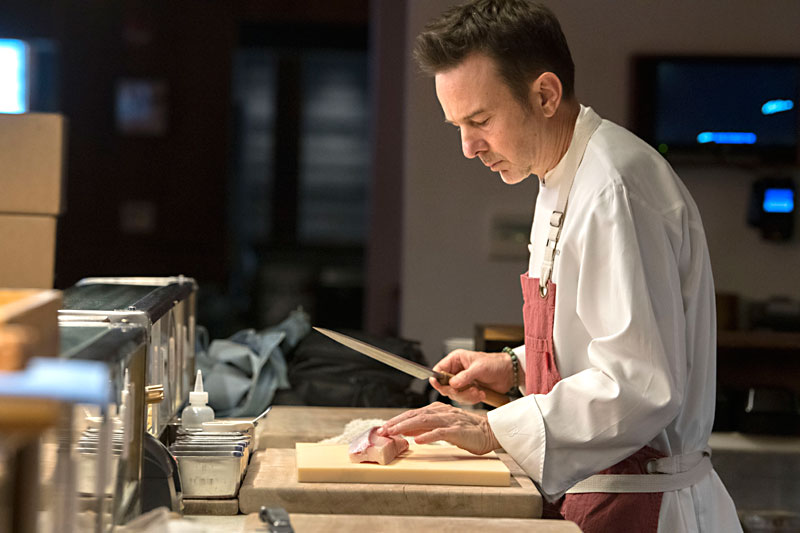
Tyson Cole didn't start out loving sushi.
The James Beard Award-winning chef, owner and co-founder of the Hai Hospitality culinary group and its many restaurants – Uchi, Uchiko, Uchiba, Loro, and their increasing iterations across the nation – didn't give a damn about raw fish or rice before he took a job in a Japanese restaurant on Congress Avenue in 1992.
"Not just sushi," says the soft-spoken man with the salt-and-pepper stubble. He smiles, aware of the incongruity. "I had no interest in food, no interest in restaurants, no interest in any of that. Zero."
It's November 2023. We're sitting at a booth in Uchi, the simple yet elegant venue nestled among towering live oaks on South Lamar, where the first seeds of Hai Hospitality were planted in 2003. Head sushi chef Shannon Kennedy is in the kitchen, attending to prep, conferring with her crew about the day's offerings. An unclouded afternoon sun filters through the delicate paper blinds covering the dining area's many windows. Cole, awash in gentle light, takes a sip of water in the refurbished bungalow in which his steadily expanding empire of excellence first began.
Obvious question for someone who had no interest in food and restaurants: How the hell did he get to where he is now?
"I came to Austin to go to college – for physics, mainly," says the man whose childhood was spent in Florida before his family moved, when he was 10, to the Woodlands outside Houston. "But I was on student loans, and those eventually ended, and I was out of money – so I couldn't go to school any more. I was in Austin, I was 22, and I was living off Oltorf with my girlfriend at the time. I was working as an assistant manager at Appletree grocery store on South Lamar, but then they were bought by another company, and they came in and offered me half of my salary, and I'd have to be a cashier instead. So I quit. And my girlfriend said, 'You're out of a job, you're out of a place to stay tomorrow.' So, out of desperation, I went Downtown, looking for a job.
"I walked up and down Congress Avenue, knocking on doors, and eventually ended up at the Elephant Room, that basement bar, thinking maybe I could be a bartender there. I went downstairs and the door was locked. It was daytime – they were closed. So I went back to the street level and saw that there were stairs that went up as well. And, at the top of the stairs, there was a giant, like, Japanese symbol. Like a shogun, or whatever? And I thought that was interesting, so I took a chance and went up the stairs to see what was there."
What was there was a Japanese restaurant called Kyoto.
"When I opened the door, there were two women in kimonos," recalls Cole. "And I said, 'Are you hiring?' and they said, 'No.' And I told them I'd do anything – wait tables, wash dishes, whatever. So they went into the kitchen and came back after 20 minutes, and they said, 'You can start tomorrow – waiting tables and washing dishes.' And that's how I started working in Japanese restaurants.
"I quickly dove into it, with an entire Japanese staff. And they had a tatami room, and I worked lunch and dinner five days a week. I was loving the people and the food, and I was entranced by the culture. They took good care of me, and I got to be really good friends with all the chefs there. And, over time, the head chef and I really hit it off, and we would hang out after work, after I was there for about six months. And I was cooking in the kitchen, and eventually it turned into, 'Why don't you make sushi in the kitchen for us? Because you can't do it in front of the customers, because you're a white guy.'"
Not exactly the sort of situation evoked by the traditional welcoming shout of "Irasshaimase!," was it? Still, Cole made sushi in the Kyoto kitchen for a year and a half, tucked away behind stainless steel walls, learning the basics of that culinary art and serving up the raw and the sliced while keeping Kyoto's front-of-house optics traditional.
"Eventually," says Cole, "two of the sushi chefs went back to Japan, and, out of desperation, they let me work lunch shifts on the sushi bar." His face brightens. "And I loved the interaction. I loved being in front of people and being creative, making bites of sushi. And the more I did it, the more I loved it. And the more I loved it, the better I wanted to get."
Which, after two and half years at Kyoto, is what he set out to do.
"Everyone was telling me about this place in town called Musashino," says Cole. "And I thought that, if I wanted to get better, I needed to work at Musashino. So I went there to ask them for a job. And I walked in, and it was four Japanese guys with long hair – and it was a nicer place: darker lights, serious music, and they all had wood cutting boards and badass knives. It was a dream come true. The main chef's name is Takehiko Fuse – they call him Smokey. So I said, 'Smokey-san, can I work here?' He said, 'Can you read or write Japanese?' And I said no, and he said, 'You can never work here.' So I went home and I cried."
"Daaamn," I say as Cole pauses, looking at me across the table. He's humble and easy-going, this internationally famous chef, but that doesn't mean he's not also a bit of a showman, subtly working his audience with story the way a sushi master works raw blowfish flesh with a fugubiki knife. "But you did work there. So, ah, what happened?"
"A week, maybe 20 days later," says Cole, "I was at my house. I'd moved to a place off Burnet Road, and I was taking the bus back and forth to work every day. And one night, at like 1:32am, there was a knock on my front door. And it was Smokey and the other head sushi chef. And they had a 12-pack of Budweiser on ice in a bucket. And they sat me on my couch – I'd been in bed, I was still in my underwear – and Smokey said, 'Tyson, we want to hire you. Come work for us.' And I said, 'Absolutely.' I guess they'd heard about how I was doing at Kyoto, how I was driven to get better. And a week later, I was working at Musashino. It was like going from the minor leagues to the major leagues. And Smokey and I hit it off. He was my first sensei. I've had four different senseis in my career, and Smokey taught me how to become a sushi chef – which is a lot. Because, in Japan, they're called sushi shokunin. They're regarded like a doctor or higher, because it takes 10 years to become a sushi chef. So I knew going in that it'd take a decade, and I worked at Musashino for almost eight years. And Smokey took me to Japan, and I learned quite a bit of Japanese, and I fell in love with being a sushi chef – the skills it took, the tenacity, and the drive. But, eventually, I wanted to have the ability to do things creatively, outside of Musashino."
To that end, Cole moved to New York City and went to work at the esteemed Japanese restaurant called BondST.
"I was only at BondST for a few months," he says, "because it was much harder – living in Brooklyn, going back and forth to Manhattan on the train every morning, it's a harder life than living in Austin. And I realized that, if I was ever going to reach the level I wanted to be at, it would've taken me another 10 years of being in New York, at BondST. But what I took away from the experience was that I'd thought I was getting better, that I was a decent sushi chef? But when I got to BondST, I realized that I was comparatively terrible, I was shit compared to chefs at that level. But it gave me something to shoot for, and I was like, 'OK, that's top tier? That's best in class? I wanna be best in class. How do I do that?'"
By opening a sushi place of his own, maybe? Which Cole tried to do – in Los Angeles, of all places, bless his nigiri-pimping heart – but it didn't work out. A year later, back in Austin again, he hooked up with business partner Daryl Kunik. They soon found the little house at 801 South Lamar, formerly a French restaurant called Si Bon, and scooped it up. Joel Mozersky Design collaborated with architect Michael Hsu to turn that house – "Uchi" is Japanese for "house" – into an appropriately appealing venue, styling the interior with the red botanical wallpaper that's now a feature in all Uchi locations. And, in that first kitchen, the "comparatively terrible" Tyson Cole and his growing crew.
"I knew," says the chef, "that with everything I'd learned over my 10-year span, if I could find a way to package that, to find people to help me get better, to find great chefs who could complement what I can do, maybe we'd have something extraordinary. Because I'm not a cook, per se: I'm a sushi chef. And that was the goal for Uchi from day one: to take the idea of that combination of hot food and cold food together and translate it into a restaurant."
Obviously, the translation worked. It worked incredibly well from the very beginning; the Chronicle's November 2003 review, by then-food critic Claudia Alarcón, was among the first of many across Texas, and eventually across the world, extolling the virtues of what Cole had launched. By 2005, Cole was named Best New Chef by Food & Wine magazine. In 2009, Uchi was named as one of the top 10 sushi spots in the country by Bon Appétit. In 2011, Cole was honored with a James Beard Award for Best Chef in the Southwest – one of the only sushi chefs to ever be so distinguished.
But let's not get ahead of ourselves with the plaudits, here. The business of Hai Hospitality took its first big leap after Uchi by starting another restaurant in 2010: Austin's popular Uchiko at 4200 N. Lamar.
"About seven years in," says Cole, "we were growing talent at Uchi and had so many good people here, that I realized, if I didn't open a second location, I was gonna lose people. Because they wanted to be promoted, naturally, and this is a tiny little restaurant. I fought the idea tooth and nail, did not want to open a second restaurant. But our people, our talent, demanded it. So we looked for a year and a half and found the Uchiko location. We opened that in 2010, and it was the tipping point for Hai Hospitality. It allowed us to try new things in a bigger space with a larger kitchen. It took us from one to two restaurants, and we grew from there."
Yes, they grew. Hai Hospitality opened the second Uchi location in Houston in 2012; a Dallas location in 2015; created Uchiba (a cocktail-forward izakaya concept) on the second floor of the Dallas Uchi in 2018, and opened an Uchi in Denver that same year. After the food service industry paused and pivoted or crumbled during the first year of the COVID pandemic, Hai brought Uchi to Miami in 2021 and opened a second Uchiko in Houston in 2022.
And that "cocktail-forward izakaya concept" called Uchiba? There's one in Austin now, too, having opened in the base of the Google Tower at 601 W. Second last October. Elegant in a way that combines Japanese minimalism with a snazzy Downtown vibe, the interior and its professional kitchen, bar, and floor staff seem lifted from the more glamorous sections of a William Gibson novel. (Your reporter is tempted to rave about the food menu's Tiger Cry Bao, especially, and the artfully deconstructed Old Fashioned, as conjured by the joint's beverage director Jason Kosmas, but any further extolments, or critiques, shall have to wait until Jessi Cape's review runs in these pages later this month.)
"And next is L.A.," says Cole with a grin, perhaps pleased to finally conquer the previously frustrating market. (In fact, the latest Uchi opened in December, on Santa Monica Boulevard in West Hollywood.) "And then comes Scottsdale, Arizona, in February. And we have a lease signed for New York City in 2025. It's surreal, it's crazy. When we open in L.A., we'll hire probably two-thirds of the staff locally, and send a third from our other restaurants. Because it's about spreading the foundation of the culture that we already have, translating it to a new space in another city. The people that work with us are so proud, they're so into it, and they need places to expand. That's the common theme to all of this, that's why we open more restaurants. When you see them thrive, for me, it's almost as a father – because I have three daughters – and it's similar to that, watching them succeed. I go see our chefs in the new restaurants, and I'm like, 'Oh god, it's so fucking awesome.' I love that."
Tyson Cole loves that. And it's as obvious as torch marks on aburi that, this far from the start of his unexpected gastronomic journey, yes, the chef also loves sushi. Given the critical and popular success of his many restaurants and the continued expansion of Hai Hospitality's people-promoting, food-forward culture, we reckon it's fair to say that the dining public itself is a touch enamored with what Cole and company have to offer. Love is in the air, so it seems; but this Austin-based culinary business, powered by one man's trajectory of impassioned learning, is well-grounded – and glad to welcome all comers with an "Irasshaimase!" at every location.
But What About Loro?
We've presented the Tyson Cole and Hai Hospitality story for you, plated journalistically and garnished with images ... but we barely even mentioned Loro? Ah, that's your lagniappe, reader, the little extra goodness at the end of a meal.
Loro, a smokehouse that melds Asian cuisine with the best of Texas barbecue, a well-patio'd neighborhood hangout where the tender beef brisket and char sui pork belly vie for a supremacy of yum, is the only Uchi spinoff so far that's a collaboration – with Aaron Franklin of Franklin Barbecue, no less. The original location opened in 2018 at 2115 South Lamar, and there's another one readying to open later this year in the Domain Northside – and more already thriving in Dallas and Houston. And how did this team-up of two Texas culinary titans occur?
"We had this idea at Uchiko," says Cole, "because we were selling so much meat over there, you know. Some of our partners wondered if Uchi could ever do a barbecue restaurant? And we realized that we'd have to have a legitimate pitmaster, someone at the talent level of our sushi chefs, to partner with. So we looked for six months, looked in Houston, looked all over. And one day we were like, 'Why don't we talk to Aaron Franklin?' And I'd only met Aaron in passing at that point, I didn't know him at all. But after one phone call to him, we had a meeting, and he said yes."
He said yes – which is what the first word in Hai Hospitality means, isn't it? "Yes"?
Tyson Cole nods, smiling. "But the best part of it to me is that, almost in unison, this echo of Aaron Franklin's career – him, smoking meats for 10 years, and me, making sushi for 10 years – there's a very similar skill set and aesthetic and drive to pull that off, you know? It's a great partnership."





